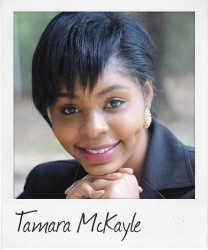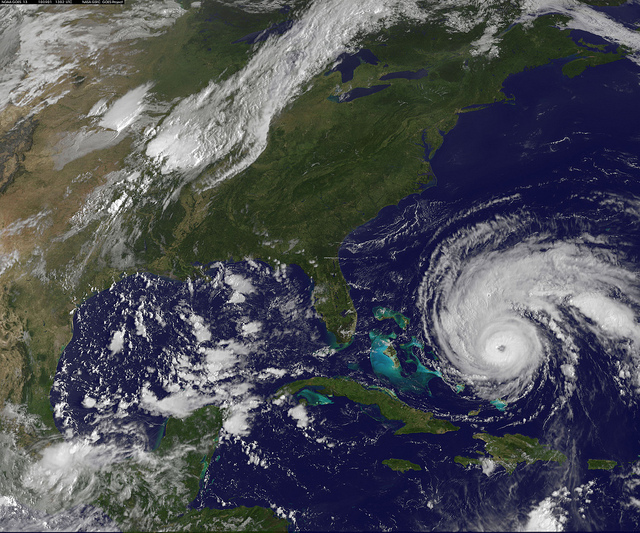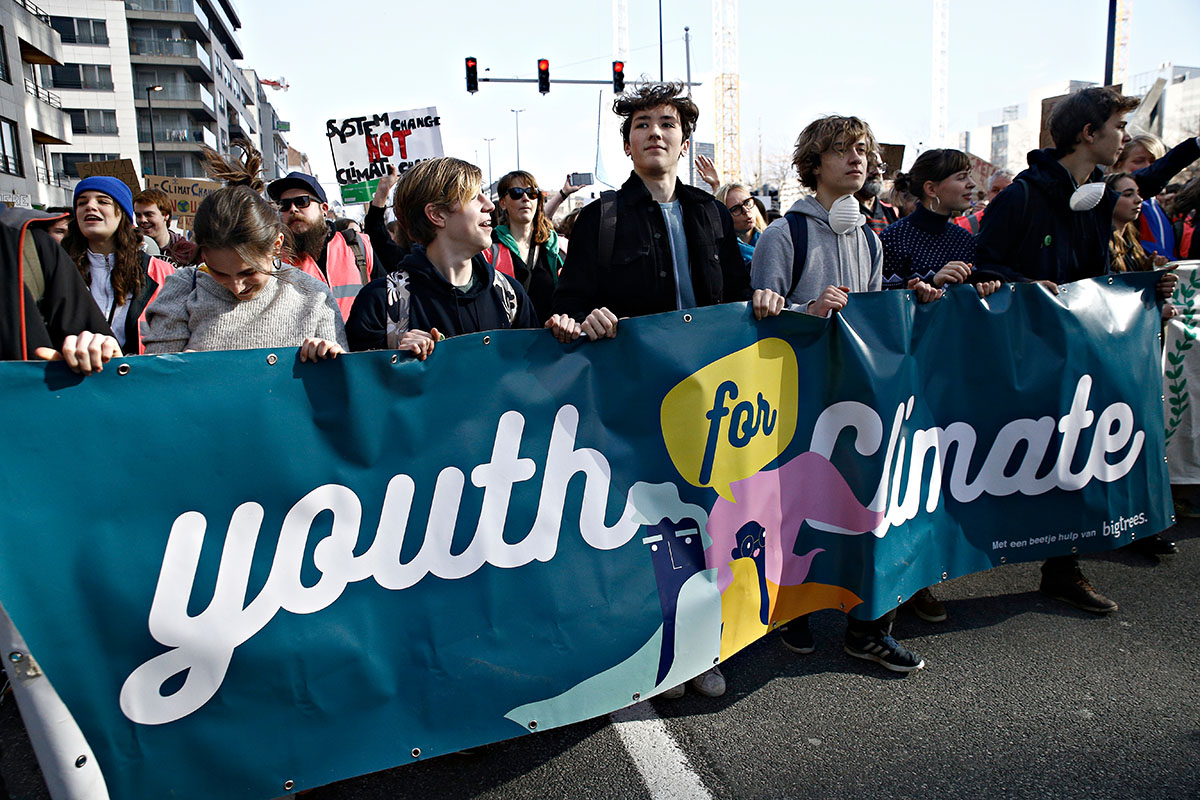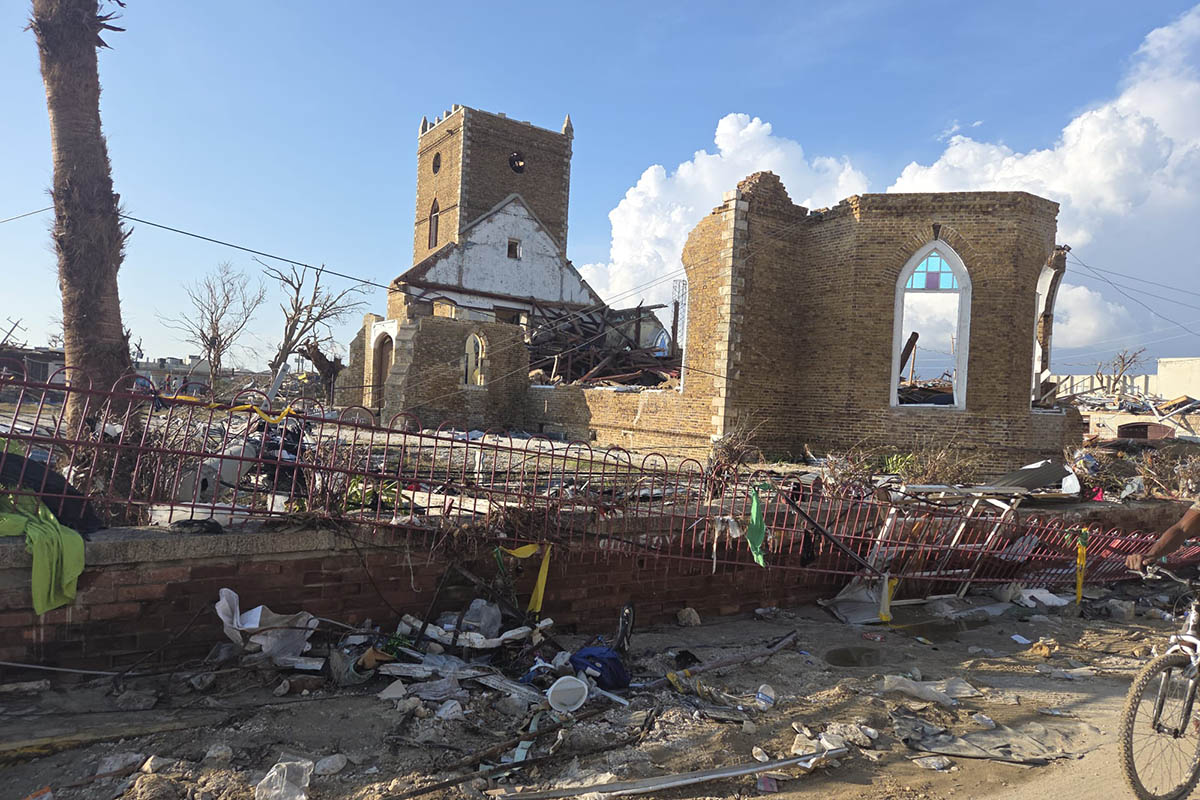SIDS 2014: "Climate change and risk management"
August 29 Small island developing states are especially vulnerable to external economic and environmental shocks. At the Third International Conference on Small Island Developing States in Samoa, 1-4 September, the Commonwealth is partnering with the United Nations, governments and international organisations to help build the resilience of these countries.
Small island developing states are especially vulnerable to external economic and environmental shocks. At the Third International Conference on Small Island Developing States in Samoa, 1-4 September, the Commonwealth is partnering with the United Nations, governments and international organisations to help build the resilience of these countries.
Climate change is already being felt, writes Tamara McKayle, 25, a Commonwealth Correspondent from Jamaica, and that means international planning for disaster risk reduction is crucial to SIDS.
“The warnings about global warming have been extremely clear for a long time. We are facing a global climate crisis. It is deepening. We are entering a period of consequences”[1] warned climate change advocate, Nobel Peace Prize winner and 45th United States Vice President, Al Gore. It is because of these grave consequences that Small Island Developing States (SIDS) have an urgent matter on their hands and need to be prepared! SIDS by their very nature are highly vulnerable due to their size and isolation, and as a result face glaring impacts from climate change.
The SIDS 2014 conference in Apia, Samoa, presents a perfect opportunity for the international community to show how serious it is about working with SIDS to pursue a plan of action to deal with the shocks of climate change. At the same time they must be prepared to handle disasters, and be more proactive instead of reactive.
Globally, May 2014 was the hottest on record since record keeping began in 1880. That was the same situation for June 2014[2] Sweat washes my face as the unbearable heat swoops down on me. Yes I live in the tropics, in Jamaica where it’s sunny all year round, but everyone notices this is not the regular kind of warm weather; this is hot, too hot! In fact our leaders, the media, and stakeholders have asserted that climate change and its effects are here staring us in the face. [3] With such extreme heat, rain is a luxury we pray for. And as the earth dries, we hear increasingly of bush fires. Water lock offs are too frequent, with some communities not having water in their taps for weeks, while farmers struggle to deal with a drought that has affected their levels of production. Consumers suffer in turn as limited food products from the market escalate prices and we bear the brunt. Will it end, or should Jamaica along with other small island developing states accept this as their new reality? How prepared are we if and when the rains come in abundance and flooding occurs? What about the reality of earthquakes? Think of Haiti in 2010, or another Hurricane Sandy or Ivan.
“Climate change is expected to cause more severe and more frequent natural hazards. As our cities and coasts grow more vulnerable, these hazards can lead to disasters that are far worse than those we have seen to date. We have a moral, social and economic obligation to build resilience by 2015. Implementing the Hyogo Framework for Action will also help us reach the Millennium Development Goals.”[4] said Ban Ki-moon, Secretary-General of the United Nations, in 2007.
Internationally, there has been much discussion as it relates to climate change and disaster risk reduction. Are the two linked? Most certainly, and many of the climate change adaptation programmes are in fact disaster risk reduction programmes as well. For Small Island Developing States (SIDS), dealing with the consequences of climate change – albeit not mostly caused by us – is an unsettling reality. The combination of rising sea levels, changes in weather patterns and increases in both the frequency and strength of tropical storms intensifies the levels of vulnerability for SIDS.
‘Climate Smarting’ initiatives [5] for SIDS therefore need to be enhanced and continued where they are working and developed where lacking, to ensure sustainable development in view of such vulnerabilities and grave threats related to climate change. ‘Squatting’ for example is an area of major concern for those living in SIDS, where lands owned by the government or private personnel are illegally occupied by families and communities are established. Many such communities are formed on the coastlines, especially in the Caribbean, so we have to take into consideration the question -how do we use the spatial allocation of lands, especially in the current reality of coastlines being eroded? How do we not only ensure that policy reflects this, but also develop practical on-the-ground work to ensure safe relocation of such peoples?
The issue of course is not only about sea level rise and coastal erosion consequences. Other major effects of climate change on SIDS impact and threaten food security, especially for the rural poor who rely mainly on subsistence agriculture. The result is not only loss of livelihoods, but could even result in loss of lives. This is why SIDS need to continue advocating for global efforts to address this serious issue, raising awareness and the need for urgency, so that climate change and disaster risk reduction plans, policies, strategies and the legislative framework can be implemented or further acted on in SIDS. We cannot wait until a next disaster takes us by surprise and we pick up the pieces to start over.
Yes, systems are in place in most SIDS but the capacity for addressing risks is not yet fully or adequately developed. This is where the international community comes in, as partnership is fundamental for sustainable development. Partnerships are needed to develop early warning meteorological systems where there are changes to wetlands, ecosystems change or shoreline erosion; to maintain proper drainage to deal with flooding; to protect assets through insurance such as the programme the Commonwealth Disaster Management Agency (CDMA) offers to Commonwealth nations to help with the financial effects of meteorological and geological natural disasters… and more.
At the top, agencies such as the United Nations Framework Convention on Climate Change must take the lead while enabling the partnership and cooperation needed between SIDS and those in the international community to battle this issue of climate change, especially as it relates to long term financing, which most SIDS lack. Financing will help to strengthen and support contingency planning, build resilience, strengthen monitoring and prevention, raise awareness and increase preparedness to respond to and recover from disasters.[6]
The question remains to be answered if SIDS can bring any success in such areas, as asked recently in a national newspaper in Jamaica. [7] I’m optimistic that it will.
SIDS 2014 Learn more about the Commonwealth’s role at SIDS 2014: thecommonwealth.org/sids2014
Learn more about the conference: sids2014.org
Join the conversation online: Twitter: @commonwealthsec
Facebook: facebook.com/commonwealthsec hashtags: #islands2014, #cwsmallstates, #commonwealth
photo credit: NASA Goddard Photo and Video via photopin cc
[1] Gore, Al. Speech at National Sierra Club Convention; 9th September, 2005.
[2] World Meteorological Organization, 23rd July 2014 http://www.wmo.int/pages/mediacentre/news/NOAAandJMAJuneishottestJuneonrecord.html
[3] “2014 shaping up to be hottest year in history” The Gleaner; 2nd July 2014 http://jamaica-gleaner.com/gleaner/20140702/lead/lead3.html
[4] Ki-moon, Ban.“Hyogo Framework for Action 2005 – 2015: Building the Resilience of Nations and Communities to Disasters” 2007 version.
[5] “Climate Smart Disaster Risk Management” http://community.eldis.org/.59e0d267/SCR%20DRM.pdf accessed 18th August 2014
[6] United Nations, “Draft outcome document of the third International Conference on Small Island Developing States,” July 2014. Accessed 31st July 2014
[7] “Can SIDS yield any success?” The Gleaner, August 18, 2014 http://jamaica-gleaner.com/gleaner/20140818/lead/lead81.html …………………………………………………………………………………………………………………
About me: I am a television writer, producer and presenter, and also specialize in Public Relations. Currently I’m a National Mentor for the Respect Agenda Campaign and a former Jamaica Youth Ambassador for Disabilities. I hold a Bachelors of Arts Degree in Media and Communications with a minor in International Relations from the University of the West Indies, Mona. I have a passion for writing, inspiring and volunteering. Like Ghandi said “be the change you want to see in the world.” …………………………………………………………………………………………………………………
Opinions expressed in this article are those of the author and do not necessarily represent the views of the Commonwealth Youth Programme. Articles are published in a spirit of dialogue, respect and understanding. If you disagree, why not submit a response? To learn more about becoming a Commonwealth Correspondent please visit: http://www.yourcommonwealth.org/submit-articles/commonwealthcorrespondents/ …………………………………………………………………………………………………………………




